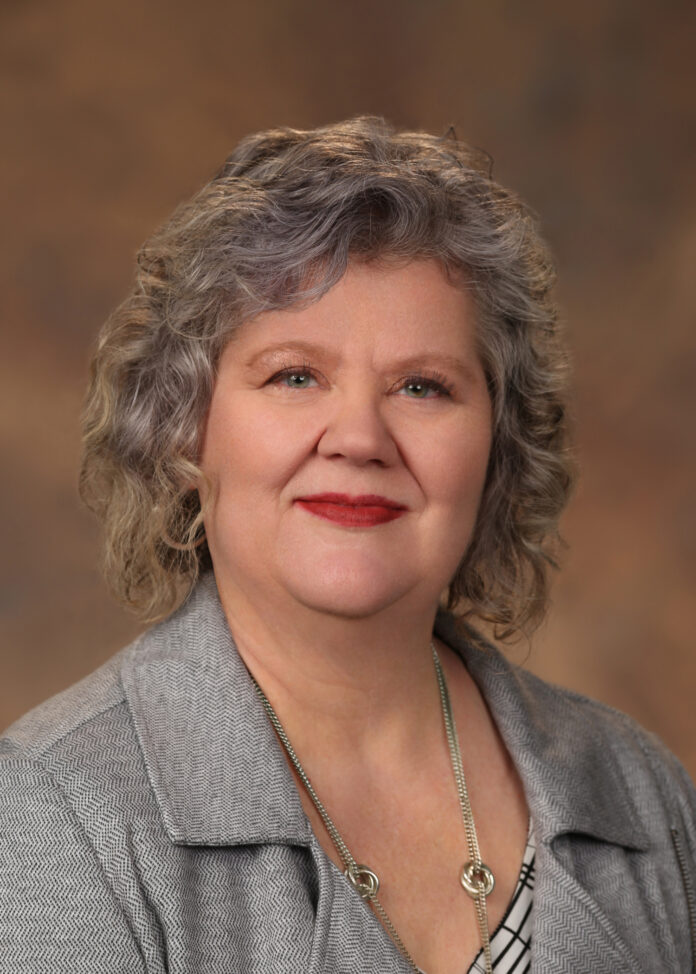
By Carol A. Cates, MSN, MBA, RN
Chief Nursing Officer
Odessa Regional Medical Center
When I was a kid, we spent most summer vacations with family in the Bozeman, Montana area. I always stayed with my Uncle Arnie and Aunt Ret on their dairy farm and helped feed and milk cows, bail hay, and all sorts of other farm chores with my cousins. When I think of my Uncle Arnie and Aunt Ret, that is how I always picture them. Active, vital, and incredibly hard working on their family dairy.
My Aunt Ret was a bit of a prankster, and always had a giggle that made you laugh with her. Even after my Uncle Arnie died nearly 20 years ago now, she kept that wonderful spirit and that infectious giggle. But a couple of years ago, that all changed.
My Aunt Ret, had a stroke. And like so many people, she waited to see if symptoms would “go away” before she finally sought medical attention. But those symptoms didn’t, and when she finally sought care, it was too late.
Now, my Aunt Ret, lives in a nursing home. She had to sell the dairy where she and my Uncle Arnie lived for nearly 50 years. She battles depression and lives her life in a wheelchair. Her vision is nearly gone, and she is completely paralyzed on one side of her body. She can’t read or watch TV; she can’t go outside alone; she needs help with all of the basics in life, including eating her meals. Her life is completely changed. Her giggle is not gone, but it’s infrequent these days. Knowing what I know about strokes, my Aunt Ret breaks my heart. If she had just sought medical attention right away instead of waiting, her outcome likely would have been very, very different.
If I could write it in the sky, if I could trumpet from the heavens, if I could speak in people’s ears like the proverbial angel on their shoulder, I would beg them to seek medical attention immediately if they have stroke symptoms. Strokes can be treated and the symptoms minimized and many can be completely reversed, if people seek medical attention quickly. The operative word there is quickly! Strokes are best be treated within 3 hours of onset of symptoms. That means, within 3 hours of symptom onset, a person needs to get to a physician, get the right testing, and get the right drugs or other procedures to have the best possible outcome.
Three hours is not very much time if you think about it. That’s why several things are extremely important with strokes.
First is to know stroke symptoms—and teach them to everyone in your family, even the kids. The best way to remember stroke symptoms is to remember the phrase BE FAST. B—a sudden change in balance, E-a sudden change in eyesight, F-sudden facial drooping, especially on one side, A-sudden arm or leg weakness, numbness, or tingling, especially on one side, S-sudden changes in speech, T-time to call 911 and what time did the symptoms start.
Second, if you see it in a loved one, push them to seek treatment. One of the weird things I see so often in strokes is people just don’t think they need to seek treatment, even when they have severe symptoms—and will often be very resistant to seeking treatment. Strokes are one of those things that it is far better to seek treatment and not need it than to not seek treatment and end up with permanent damage. This is purely my opinion, but I would much rather a loved one be mad at me for a couple hours because I made them go to an ED when they didn’t need to than to see them go through what my Aunt Ret lives with every day. I hope my loved ones feel the same when it comes to me.
Third, go to an emergency room. Do NOT go to your doctor’s office. We have some amazing physicians in this community, but not many have CT scanners in their office, and the few that do, I doubt they can treat a stroke in their office, especially if that stroke needs surgical intervention. Emergency rooms have both the doctors, the CT scanners, and the treatment capabilities all in one place, which saves that precious time in getting strokes taken care of.
Fourth, instead of taking yourself or your loved one to the Emergency Room, call 911. Its safer, its quicker, and like with so many other health emergencies, our wonderful medics at Odessa Fire Rescue have the skills and resources to start much of the process of rapid stroke diagnosis and treatment in the ambulance before you even arrive at the emergency room.
Treatments for strokes are varied and depend largely on the type of stroke and when the symptoms started. But the one thing in common with all treatments for stroke is the quicker a person is diagnosed the quicker we can start treatment. The quicker treatment is started, the higher that person’s chances of a good outcome. Then it’s less likely they will end up like my Aunt Ret with their life forever changed because of a stroke.
Please remember to BE FAST—so you recognize stroke symptoms, but also so you will BE FAST in calling 911 and getting to an emergency room.



